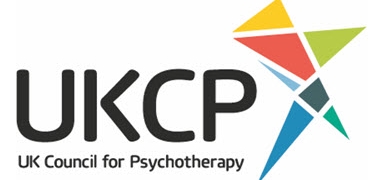Emotions of abortion
/Are there emotional symptoms following abortion?
Have you experienced any emotional symptoms following an abortion? Even if they are years later? Why, if the abortion took place some time ago, do emotional symptoms come up now? What are the feelings and thoughts that surface and how do they affect you? Are there any specific triggers and how can counselling help?
Challenging emotions
Clients arriving for help following an abortion come displaying a variety of feelings including those of depression, anxiety, anger, guilt and shame, related to the abortion, whether it was recent or historic. Sometimes the feelings arise when the client has achieved a safe place in life and is reasonably content in other aspects of life.
Abortion can bring with it several challenging emotions, and we can never be sure when they rear their heads.
Feelings of shame
The emotion of shame, in particular, can lead the client to thinking that there is something wrong with her. These negative beliefs lead to an interlocking loop, a cycle of thoughts around shame, responsibility and blame. Women who are prone to shame, consider their current difficulties and can find themselves taking on all the responsibility. Self-critical messages might include: ‘I am a bad or crazy person’, ‘What’s happened is all my fault’, and ‘I need to stop feeling self-pity and just get on with it’.
Women can feel shame about having feelings and thoughts connected with the abortion, including panic attacks, flashbacks, unwanted memories, and negative thoughts. For some, the sense that life is becoming out of control, can lead to her seeking distractions by excessively working, or turning to addictive behaviours, by blaming others or attempting to become perfect. Struggling to control unwanted emotions might lead to anxiety and feelings of depression.
The feelings of shame that can come with having an abortion can lead women to seek escape, whether it's through overworking or through more damaging means such as addictive substances.
Loneliness and isolation
Apart from an internal sense of shame, the effects of an abortion lead some women to feeling alone and isolated. They can feel compliant and disinterested in life, or unmotivated and bored. Alternatively others have an urge to run away, or feel panicked and distressed. Reminders of past events surrounding the abortion or anniversary dates, cause some to becoming easily triggered.
In 1987 the American Psychiatric Association Diagnostic and Statistical Manual of Mental Disorder[i] acknowledged the affects of abortion. They described several symptoms, such as ‘intrusive thoughts’, ‘feeling flashbacks’, ‘denial of emotions associated with the abortion’, ‘feeling detached or estranged from others’, ‘angry outbursts’, ‘hyper-vigilance’ and ‘depression’.
What causes emotions to arise?
Specific triggers can include the anniversary dates for when the child would have been born, noticing pregnant women, or friends having babies. Other triggers are associated with life changes such as, getting married, having a subsequent birth, changes in the working environment and the onset of menopause.
How counselling can support emotions around abortion
Counselling can help a woman to explore and discuss the emotional, psychological and physical impact of her abortion. Gaining a newfound understanding of her past, accepting and not burying the emotions surrounding the decision and apportioning appropriate responsibility. The counselling relationship and exploring how the past can affect the present enables a new perspective on life, more self-compassion, self-acceptance and the restoration of self-confidence.
[i] American Psychiatric Association (1987). Diagnostic and statistical manual of mental disorders III-TR. Washington DC: American Psychiatric Association. p.250.
For more support, book a introductory session with one of our counsellors.






